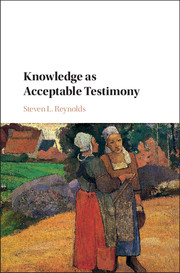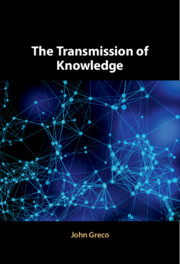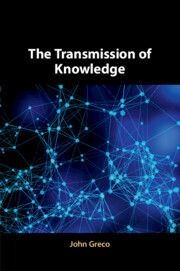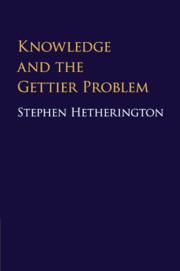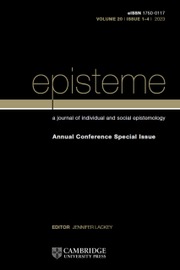Knowledge as Acceptable Testimony
Standard philosophical explanations of the concept of knowledge invoke a personal goal of having true beliefs, and explain the other requirements for knowledge as indicating the best way to achieve that goal. In this highly original book, Steven L. Reynolds argues instead that the concept of knowledge functions to express a naturally developing kind of social control, a complex social norm, and that the main purpose of our practice of saying and thinking that people 'know' is to improve our system for exchanging information, which is testimony. He makes illuminating comparisons of the knowledge norm of testimony with other complex social norms - such as those requiring proper clothing, respectful conversation, and the complementary virtues of tact and frankness - and shows how this account fits with our concept of knowledge as studied in recent analytic epistemology. His book will interest a range of readers in epistemology, psychology, and sociology.
- Explores how the concept of knowledge functions to improve the exchange of information
- Reconsiders the philosophical theory of knowledge using the concept of social norms, taking a new approach to a central philosophical problem
- Outlines recent developments in analytic theory of knowledge, making this book accessible to readers beyond epistemology specialists
Reviews & endorsements
'Reynolds (Arizona State Univ) makes his case with lucid, evenhanded arguments, comparing his position to previous theories and trying to counter anticipated objections.' S. E. Forschler, CHOICE
Product details
June 2017Hardback
9781107197756
222 pages
235 × 156 × 15 mm
0.43kg
Available
Table of Contents
- 1. Social norms, knowledge, and philosophy
- 2. What is knowledge?
- 3. Developing a concept of knowledge
- 4. Is that our concept of knowledge?
- 5. What is justified belief?
- 6. Justified belief is the appearance of knowledge
- 7. Testimonial knowledge and social norms
- 8. Knowledge from testimony
- 9. Doxastic voluntarism and epistemic evaluations
- 10. Why we should prefer knowledge.

